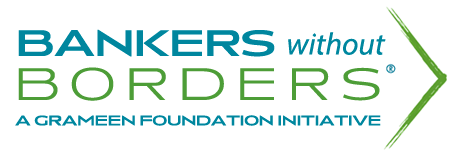A move to Africa was something I had never seriously contemplated before May this year, given my undying love for, and attachment to, Asia. Being offered the opportunity to work for Grameen Foundation in Kenya was the first of many welcomed surprises 2013, and this Fellowship, brought with it. I had spent the first quarter of this year meticulously plotting strategies to move away from public health into food security, and develop an expertise in ICT programming. What I hadn’t expected was that I would have chance to do so with one of the frontrunners in mobile technologies for development (M4D), in a country where M4D initiatives have had an inordinate amount of success. In the three months I’ve been here, I’ve discovered a love for quantitative data analysis I never knew I had, I’ve learnt a great deal from cutting-edge entrepreneurs that Nairobi is brimming with, but most importantly, I have been forced to re-examine my ideas on how development is ‘done’ and move away from more traditional approaches to development, which I had previously quite strongly prescribed to.
Being a student of development, and having worked with traditional development organizations, unlike most of my peers and colleagues at GF who have a private sector orientation, I was something of a purist. I believed that development organizations and the private sector were fundamentally at odds with each other, the former cleaning up the mess caused by a fundamentally inegalitarian system. In a similar vein, I felt extending financial services to the poor based on watered-down banking principles was an extension of, and not a fix for, the same broken system. I was also torn about whether microfinance was really a tool for empowerment, or one that was actually exploitative, given the fire its come under in recent years. I was keen to learn about how GF’s program beneficiaries felt about the financial services and interest rates offered to them through our partner organizations, and what I’ve learnt in my time here has caused a paradigm shift in how I think about the issue.
I attended GF’s ‘Agricultural Training and Customer Relationship Management Training’ developed for a microfinance institution (MFI) called Musoni, one of the investees under its Growth Guarantee Fund, earlier this month. I had a chance to gain an in-depth understanding of risk mitigation through thorough loan analysis and structuring, and learn about ‘Kilimo Booster,’ an innovative product GF has helped Musoni develop, to branch out into agricultural lending. The Kilimo Booster is tailored to the needs of each client applying for the loan. Farmers are offered flexible repayment terms based on their cash inflow, determined after a methodical cash-flow analysis, a practice uncommon amongst most MFIs. They are offered flat interest rates, annually only 2% higher than those offered by banks, which are unwilling to extend loans to farmers anyway, viewing them as high-risk clients. The loan comes with advise on how farmers can best grow their businesses and optimize income based on resources available to them. In effect, this product counters all problems associated with microfinance, and demonstrates that there’s a way to get it right, something I previously did not imagine possible.
My key take-away from this training, and involvement with GF’s operations in Kenya, has been that programs can be effective and inclusive in practice, and not just on paper, if the necessary resources are expended in engaging with the needs of the beneficiaries, and that a multi-stakeholder, multi-pronged, collaborative approach is far more likely to achieve intended results than working alone. I feel fortunate to be a part of an organization that delivers so effectively on its promise of offering innovative services, and challenges its employees and partners to think outside the box. Three months in, I’m glad I made the move. In terms of adding value to the way I think about development solutions, this Fellowship has exceeded my expectations, and I am excited about learning and innovating during the rest of my time here!
Fiza Salem is a Sub-Saharan Africa Fellow, based in Kenya.

